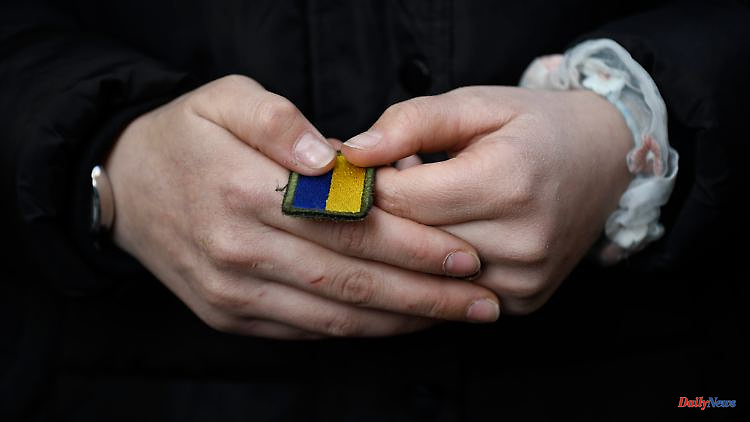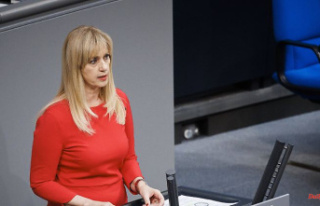As with 9/11, many people will remember the day of the Russian invasion of Ukraine. The start of the war is also a drastic experience for top politicians in the traffic light coalition. For the first time, they report very personally on how they experienced the days a year ago.
Economics and Climate Protection Minister Robert Habeck was informed of the imminent invasion by the US Embassy in Berlin on the eve of the Russian invasion of Ukraine. In the early evening he received a visit from the US embassy in the ministry, the Green politician told the "Stern". "I got a dossier that said: Tonight it will happen. The blood bags are thawed, the rocket launchers are loaded, the vehicles are marked, and the troops are clearly moving towards the border. It was clear: the war is coming, it becomes bitter reality." A year ago, on the morning of February 24, Russian troops invaded the neighboring country on the orders of President Vladimir Putin.
In her own words, Federal Foreign Minister Annalena Baerbock can still remember the morning clearly: "It took me a moment to classify the vibration of the phone as real. At 4.51 a.m. the first explosions were reported in Kiev. At 4.59 a.m. my office manager was on the phone I said: Please don't," says Baerbock in the "Stern" documentary. It was always clear that war could begin. "But when it happens, it still takes your breath away." She then got dressed and went to the Foreign Office.
Numerous phone calls and conferences followed throughout the day. In the afternoon, Baerbock had the first opportunity to call her Ukrainian counterpart Dmytro Kuleba. "We had often met in the weeks before, spoken even more often. In such moments, of course, you think that he also has children," says Baerbock. A day later, Kuleba was also connected to the special meeting of EU foreign ministers in Brussels via video. "He thanked us for taking the time," Baerbock recalls. "I just thought, how surreal. We're sitting here warm and safe in Brussels, he's in a basement in Kiev, secured with sandbags. And he said: thank you."
The weekend before the war began, the unanimous opinion at the Munich Security Conference was that Putin isn't doing it, says Chancellor Wolfgang Schmidt. Many participants said: "An attack doesn't make any sense, Putin won't be able to take and occupy Ukraine, even 150,000 soldiers aren't enough for that. Zelenskyy said in his speech on Saturday: There will be no invasion."
Even the SPD chairman Lars Klingbeil would not have thought that Putin would really attack. "I always believed that could still be avoided," he says to "Stern". The realization on February 24 was all the harder. "I woke up in the morning and had the message on my cell phone: war had broken out," says Klingbeil. "I was shaped by 9/11 when I lived in New York, where it quickly became clear: something very, very big is happening here, it will shape our lives." That was also the case this morning. "It's a tectonic moment, it's shifting everything, it's not over in two weeks either."
"Life is changing completely. Almost all appointments in the calendar: deleted," says Interior Minister Nancy Faeser. Everything depends on the war. "From day one, I was in the meetings and switching of our crisis management team every morning, for months, every day." Faeser explained to her then seven-year-old son "what war means for people, that it means that many people are in very bad shape and some of them flee to us in Germany". One does not get around to thinking about the dimensions of what is happening, said the SPD politician. "The most important thing is to function."












